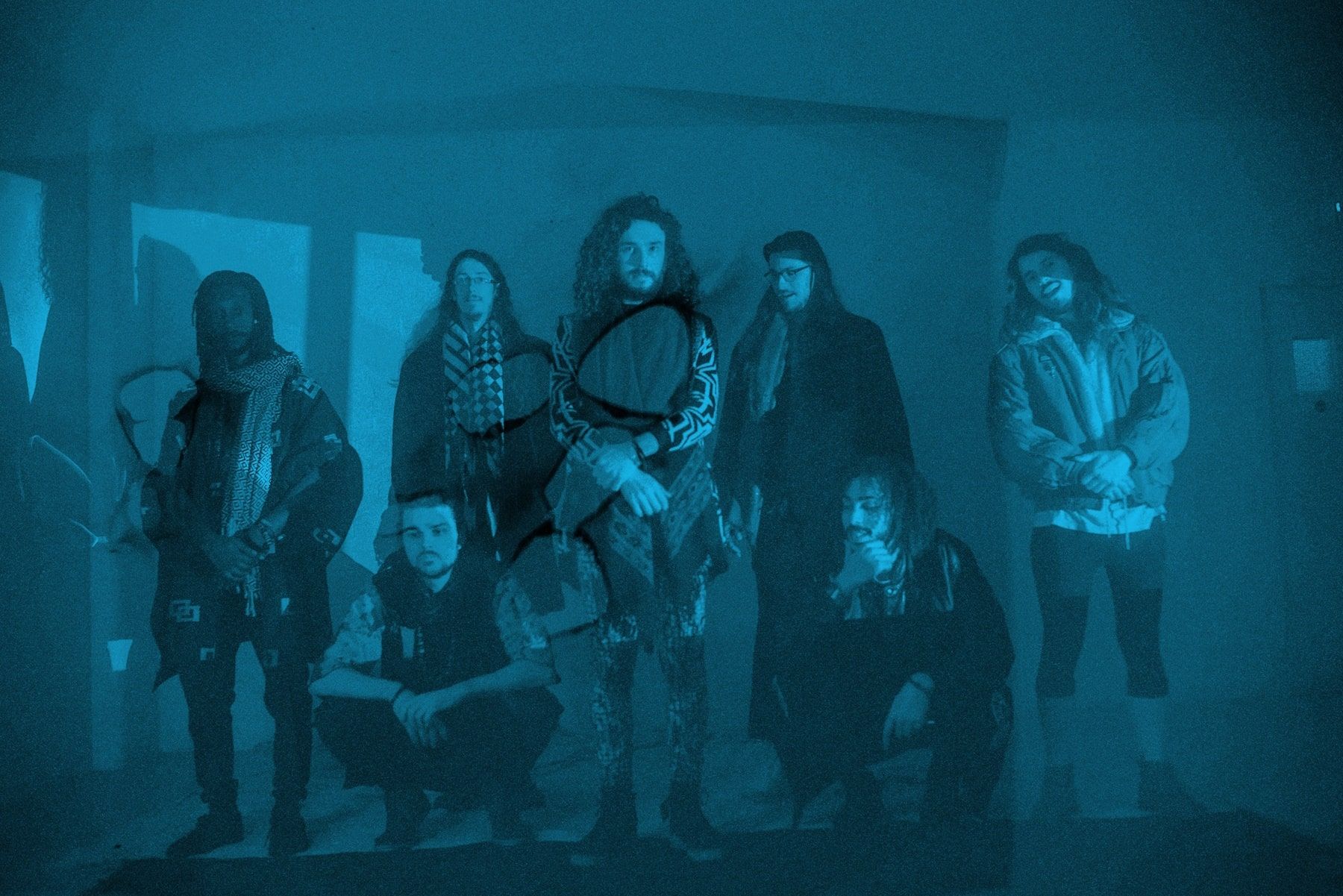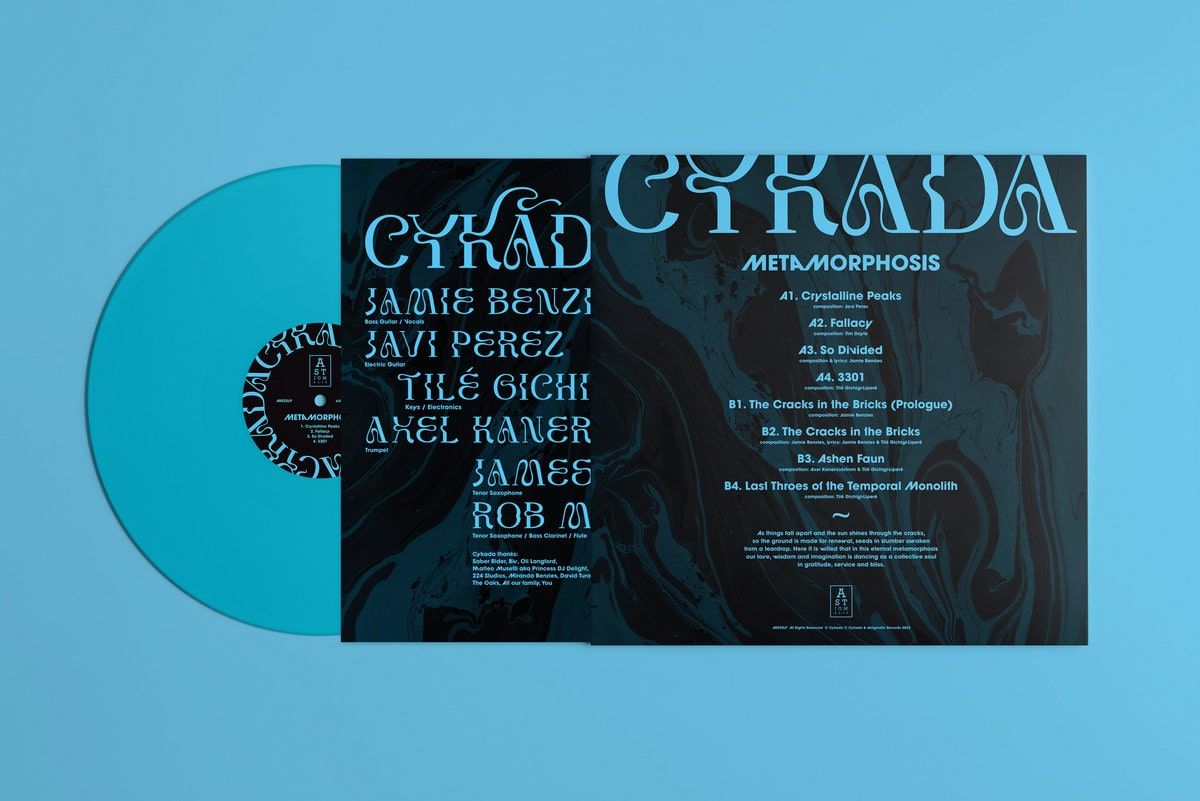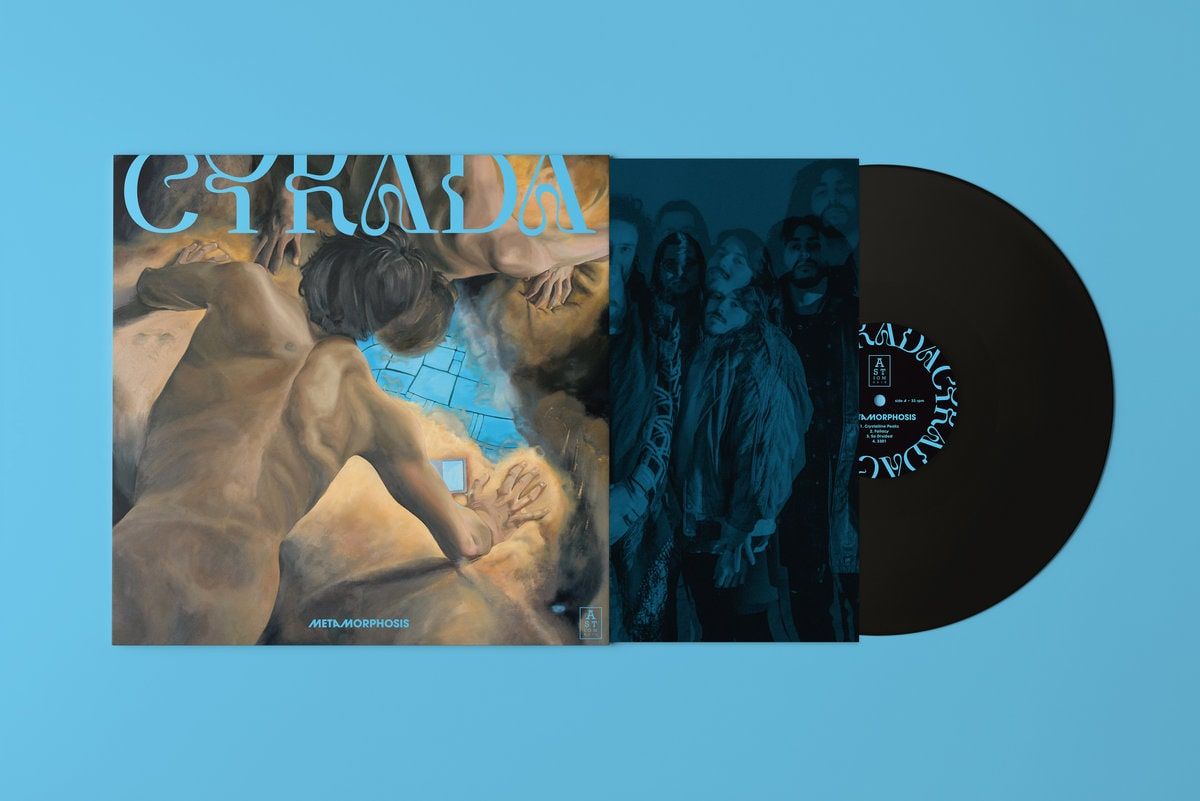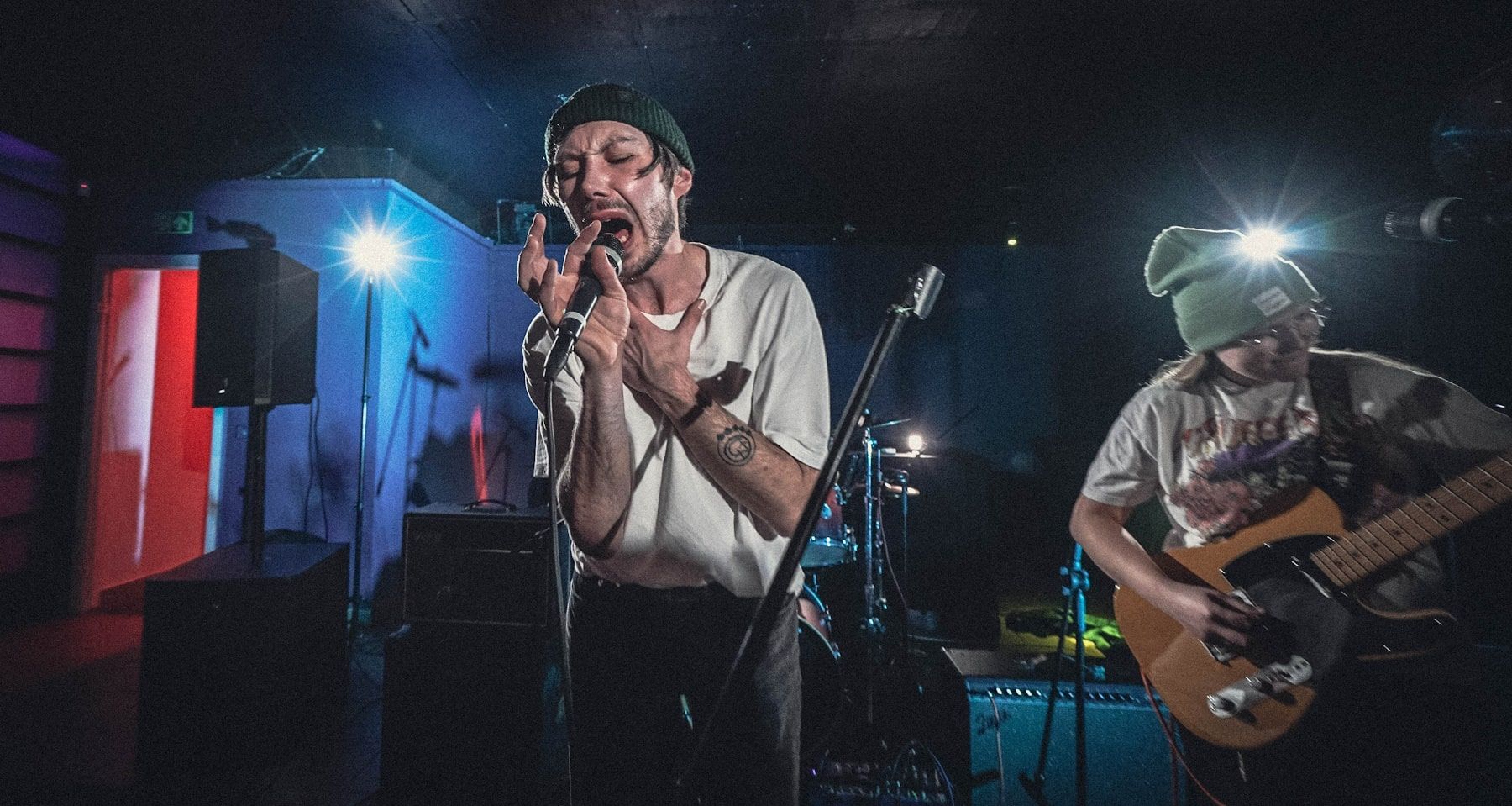Navigating through the landscapes sculpted by CYKADA’s “Metamorphosis” presents an intriguing endeavor akin to unearthing a sonic relic that reflects our tumultuous times. Emerging from the underground silences that encapsulated their journey, CYKADA’s latest offering marks a reflection of change, both within and without.
“Metamorphosis” transcends the boundaries of genre and expectation, serving as both a mirror and a window—a reflective surface for our current predicaments and a vista into the possibilities of what lies beyond.
Compared to the comfortable grooves of its predecessor, the album expands and evolves, inviting a multitude of influences into its fold. From the electrifying currents of indie and psychedelic space rock to the earthy pulses of jazz, afrobeat, interwoven with the depth and vibrancy of bass music, the album is a kaleidoscope of sound that defies easy categorization.
CYKADA’s diverse musical approach has matured into a unique and inventive fusion, blending elements of folk and jazz with the robust energies of sound system culture and rock. The ensemble expanded to a septet with the addition of multi-instrumentalist Rob Milne, thereby enriching the horn section to three instruments and invigorating their overall sound.
Through their special track-by-track commentary below, the band not only demystifies their creative process but also invites the listener into a deeper engagement with the music, urging them to ponder the nexus of change, both personal and collective, that “Metamorphosis” seeks to encapsulate.
We truly harbor the aspiration that fortune will grant me the privilege of witnessing their live performance, a spectacle we anticipate comparing to the immersive experience offered by another collective worthy of your attention, should you find resonance in this genre: EABS.
Ladies and gentlemen, we give you: CYKADA!
Crystalline Peaks
The album opens with an improvisation from guitarist Javi Perez backed up with electronic manipulation from Tile Gichigi-Lipere, an idea originally designed for live sets that made it a good vibe setting intro for Fallacy.
Crystalline Peaks serves to me as a sound painting of technologically enhanced consumeristic ambition – alluring yet illusive and in reality desolate; ringing with despair and isolation. Moments of tentative optimism reflect the waning belief in this path as it’s unreality sets in. These great translucent heights denote life as an advert for the hierarchy of individualism and the fallacies we live by.
Fallacy
Fallacy abruptly calls out x with justified rage and euphoria. The whole band joins full power into the metamorphosis by recognising and expressing the frustrations of living within a society motivated by dangerous and manipulative lies. This song is the most collectively composed of all on the album, initiated by ideas coming from drummer Tim Doyle, it also features melodies written by saxophonist James Mollison and is a product of venting and improvising together, as well as further exploring our love for harder rock and metal.
So Divided
One fallacy or baseless belief that we often discuss in the band is that of the notion of superficial and categorical differences dividing us human beings for the sake of political state/corporate domination.
This song addresses the scourge of divisive propaganda we experience relentlessly in our societies that tell us to fear and reject one another in order to divert reactionary energy and outrage away from the parties genuinely responsible and keep us wrapped up in superficial disputes – An oldest of tricks in the book of divide and conquer is at play.
This song is a reminder of this, though it also gives hope by reminding us of the impossibility of truly possessing nature and thereby human nature.
This is the first Cykada song to have vocals from myself (Jamie Benzies) and I wrote the main refrain and seed of the song in a balcony of the Elbphilharmonie building in Hamburg, where I was playing with Family Atlantica at a festival in 2017.
It was a few days before a G20 summit was to be held in the same building and there were heavily armed police and bomb search squads everywhere, after our concert I ended up having a 45 minute discussion with two policemen guarding the front door with machine guns, they were arguing between themselves about the ethics of their own jobs and the politicians they were there to protect.
They were themselves divided by idealogical, generational and political differences, yet beneath a few layers of symbolic semantics their needs and desires were the same as 99% of humanity, exposing again the intricate identities prescribed to us that serve to convolute expression and care of our humanity.
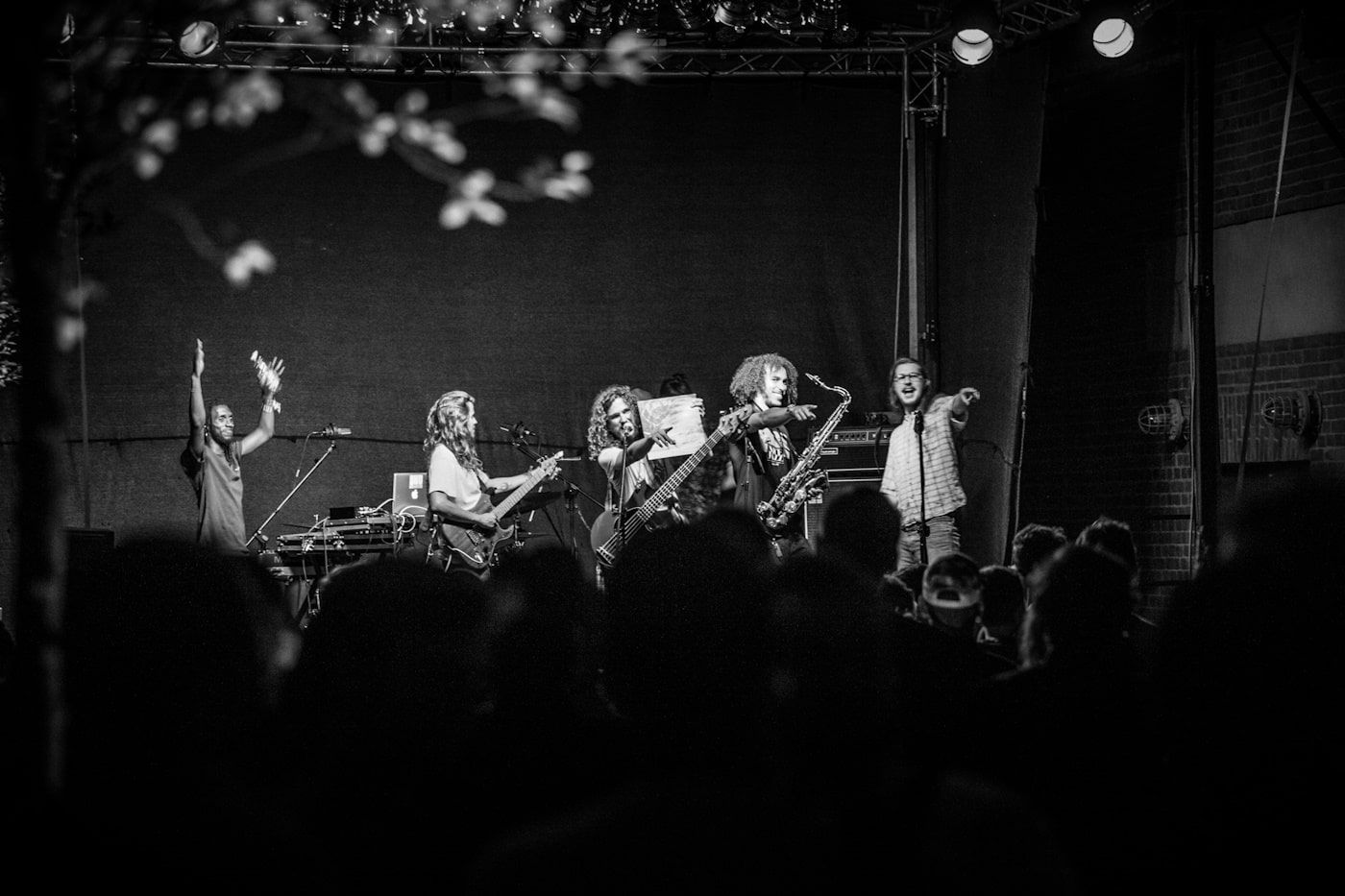
3301
Written by Tile Gichgi-Lipere this tune is an adventure into the virtual realm inspired by brokenbeat and the cicada 3301 cryptic puzzles that led internet codebreakers down rabbit holes to unknown destinations. Whilst the rest of the album all contains feelings of urgency and catastrophe, this is the one song on the album which just enjoys the android state of being (well done Tile), cruising in augmented reality.
The Cracks in the Bricks
This tune started with the bass line which I was inspired to create from a dundun drum groove I heard in a village in Casamance, Senegal, shortly before unwittingly taking part in a ceremony that contained the ritualistic sacrifice of a chicken and a puppy dog amongst some other details I will spare here. Something got under my skin in that time, the groove I had experienced there echoed it. At the time the extent to which African slave labour had been used to build Britain and it’s major architecture was a central topic of conversation in the UK (ie. Colston Hall).
Tile and I began writing lyrics for this groove together after discussions about the taboo of death and suffering that left unacknowledged only haunts us with an inertia within that death, it becomes the air we breathe and the homes we live in. The Cracks in the Bricks lyrics are as straightforward as So Divided, but here I sing of the haunting of our spirit that is occurring in our cancer-like obsession with growth and denial of death and suffering.
This song embraces the madness and carnage, it accepts and releases ghosts, it is a cry of anger and pain at the continuing price for the path humanity is on. It is a statement of awareness and defiance to the notion of progression by domination.
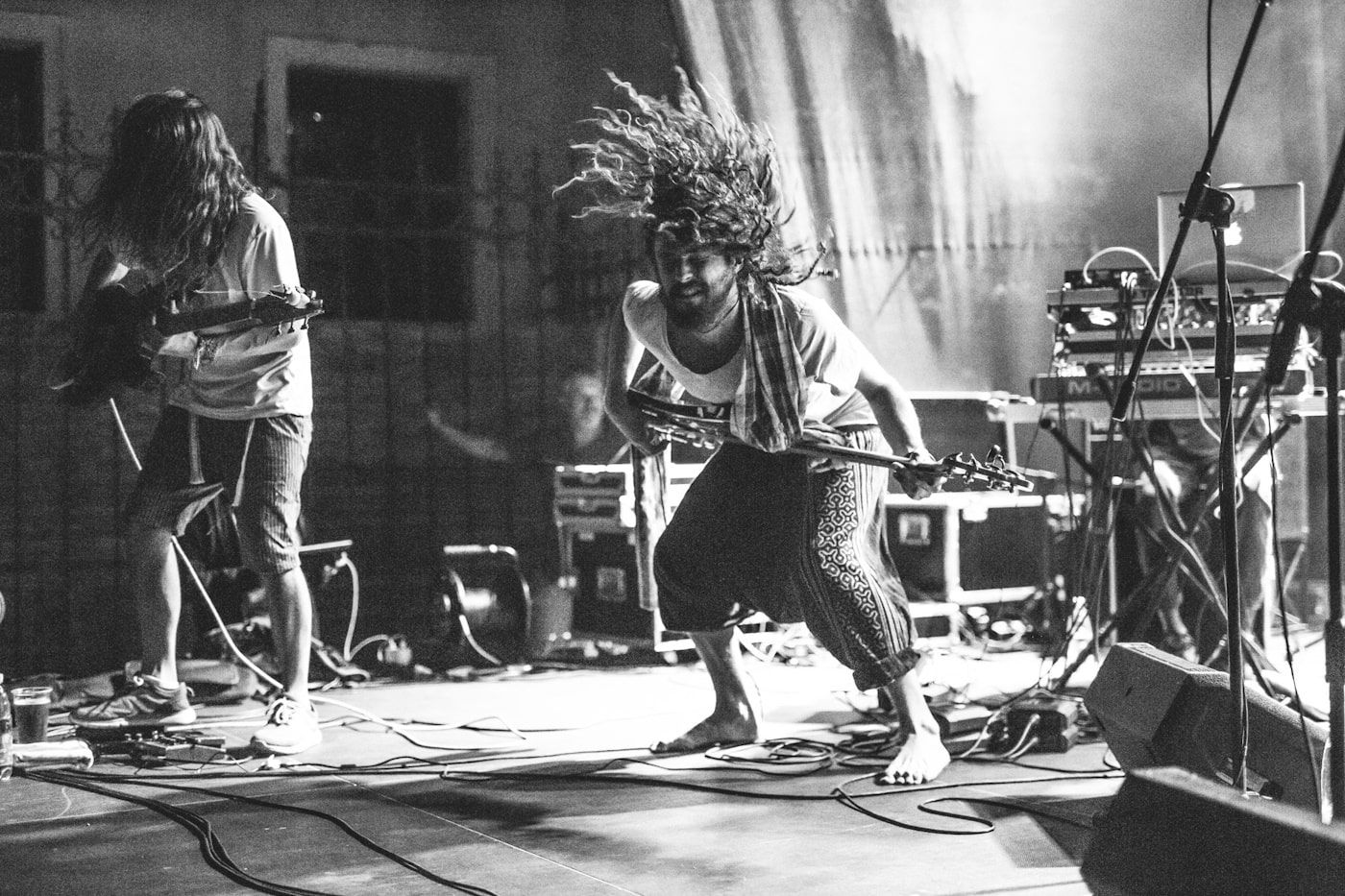
Ashen Faun
Written by Tile and Axel this song had a very contentious working title, but then in the context of the album it made sense to me to name this after the Celtic mythological figure of the faun, a misunderstood ancient deity who is often referred to as the source of horned depictions of the devil. Demonised and burned, the faun somehow is surviving the ages alongside it’s counterpart the Green Man, still carved into wood in the most unlikely of places. The Faun is the protector of the forest and mother nature, thereby I consider him a symbolic of a kind of positive masculinity.
The album contains a lot of burning so it is a sign of hope that a naturalistic folkloric form such as this may survive to guide us to the other side, even though he is burned he is still exuberant and lives on in our collective consciousness; a figure to inspire those that suffer from the toxic masculinity that all too often drives the poisoning of our world.

Last Throes of the Temporal Monolith
This outro was created by Tile, Axel suggested he reused stems from the album to create a soundscape, the result sounded like the falling of a colossal sci-fi monster. I heard this and couldn’t help but hear this as the moment of reckoning for the corrupt, oppressive system and ideologies that rule us, a reckoning that we will to arrive imminently through technology, the relearning of the basic concepts of reality we live by and the metamorphosis of humanity and perception.
Keep in the loop!
🔔 Join our Messenger and WhatsApp
📜 Get daily news via Instagram Stories
🗞️ Subscribe on Substack
Your support keeps us alive!
IDIOTEQ is a one-man DIY operation, tirelessly spotlighting the local cultural scenes and independent bands that often go unreported elsewhere. Born in the early 00s, this platform has been committed to giving hard-working artists the high-quality coverage they truly deserve.
No ads, no distractions—just pure inspiration and a genuine focus on independent artists and their stories.
Please consider helping keep IDIOTEQ ad-free and in tune with the indie scene by donating today.
DONATE via PayPal 𝗈𝗋 SUPPORT via Patreon
100% of the funds collected go toward maintaining and improving this magazine. Every contribution, however big or small, is super valuable.
Your support ensures that we continue to be a place where you can discover, learn, and get inspired, without any advertising noise. Thank you for being a part of this musical journey.



